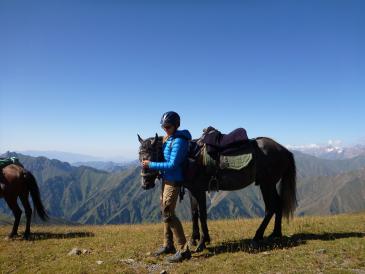Speaker: Carolyn Willeke, Mount Royal University
Horses have long played an intrinsic role in human society, and this was certainly the case in
ancient Greece where they were a living embodiment of wealth, status, and prestige. Images of
horses gallop, snort, and prance their way through the artistic record, and references to
equines are found throughout the textual tradition. The pervasive presence of this animal in
the literary and visual culture of the Greek world attests to their symbolic and economic
significance, but what if we dig a bit deeper? What can we discover about the horses
themselves and their interactions with humans, and how can we use this to build a more
detailed understanding of the importance of this animal? This talk will look at the horse as a
living artifact by exploring some of the ways in which we can use experimental archaeology,
practical experience and equestrian knowledge, as well comparative studies to reconsider
different ideas and theories about ancient horses and horsemanship in order to build a more
comprehensive picture of equines and equestrianism in the ancient world.

